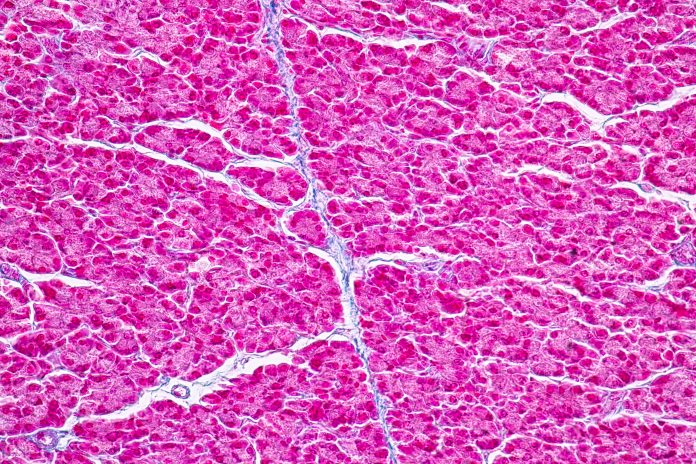Chiara Frazzoli and Alberto Mantovani from Istituto Superiore di Sanità share their insights into endocrine disruptors and non-communicable diseases in Africa, in collaboration with NOODLES Alliance Network
In Africa, the burden of diseases indicates a new era of comorbidities, in regards to risk factors, as well as clinical features, from chronic multifactorial diseases to multi-diseases or “altered functionalities”. High (and uncontrolled) rates of toxic exposures are due to lack of awareness and governance and immature or non-existent legislation and infrastructures; widespread exposures change along with lifestyles, the living environment, food production and global market of consumers’ products, including dumping.
Concerning pesticides, biocides, flame retardants, food contact materials: the overall daily burden of new toxicants in the African scenario might exceed the body protective detoxification rate and the whole ability of the body to restore a functional internal environment. Global sustainable development pivots on ethics in global informal (for instance, e-waste) and formal market (for example, bisphenol A-containing baby bottles). Along with this, African proactiveness on healthier environments will stem on both increased knowledge and stronger awareness.
In growth-eager societies, risk reduction measures may meet resistance due to the short-term loss of some economic benefits, but unhealthy economic growth may trigger the onset of serious health problems later on or to the next generation. Globally, increased knowledge on long-term or transgenerational effects including endocrine disruption, calls for up-to-date, often stricter policies, with banning of several seemingly “useful” substances, for example, the recent inclusion of perfluorooctanoic acid in the Stockholm convention.
The driver of both health and economy is food: the potential wealth of Africa comes from within, from its land and primary food production. The enforcement of up-to-date safety rules on toxicants will facilitate the market access for African producers, both within Africa and in the rest of the world. Due to growing awareness in a number of countries (e.g. Algeria, Cameroon, Ghana, Nigeria, Senegal, South-Africa), safe food production is expected to rise in large parts of Africa.
Both clean food chains (e.g. with science-driven, sustainable use of fertilisers, pesticides, veterinary drugs, sanitisers) and a re-established value chain (supported by e.g. control, certification and traceability) may provide young African enterprises with an impetus for new business opportunities; in particular, farmers would be recognised for their strategic role in supporting both community health and wealth.
Community strategies should develop a rural-urban integration, including the transfer of knowledge from, for instance, universities to farms. Mass media have a key role to play due to lack of consumer awareness; mass media communication can rapidly change the preferences and perception of products. African land is potentially rich in raw foods but local productions often provide poor access to the local and global markets and face heavy challenges from international brands which often are perceived as of higher quality.
African countries, even those having well-rooted farming traditions, import low quality (but more affordable) products. For instance, in Mali, a country with a strong pastoral root, the use of imported condensed milk is widespread in urban communities, while efforts – however valuable – for exploiting traditional dairy products are still at an early stage.
In the African scenario, nutrition is the main factor for diseases prevention and health promotion. Chemical contaminants may interact with nutrition by exerting “antinutritional” effects. For instance, endocrine disruptors acting on thyroid, like perchlorate, may both interfere with iodine, thus inducing a nutritional deficiency and/or increasing the organism’ need for iodine. Other pollutants, like dioxins or cadmium, may increase the requirements for nutrients (for example, selenium, vitamin E) involved in antioxidant defences.
Also, endocrine disruptors can interfere with the action of hormones involved in energy metabolism (thyroid, insulin, adipokines, etc.) thereby acting as risk factors in the onset of “malnutrition-related” disorders, such as obesity and Type 2 diabetes. Indeed, nutritional imbalances may synergise with environmental and behavioural factors: some increasingly contaminated African environments also show the highest prevalence of essential chemical element deficiencies.
African countries are called to make critical choices for diseases prevention. Resources have to be devoted to relevant top-down (institution-driven) interventions, policies and programmes (for instance, national laws and regulations on imports and production, food control systems based on risk assessment and good quality laboratories). In parallel, rapid changes in global dynamics require mobilisation from the bottom-up. Waiting for improved regulations and their implementation, communities’ empowerment on good practices and responsible behaviours in daily life will support both informed choices, as well as avoiding or mitigating health risk factors.
In our view, science-supported bottom-up movement can mitigate avoidable toxicological health risk factors and help to develop responsive policies. This is the purpose of the sub-Saharan Africa NGO NOODLES Alliance Network, where scientists and civil society are engaged in food safety, nutrition and related environmental aspects, with special attention given to risk factors for next generation’s health, such as endocrine disruptors. African scientific research on food and environmental toxicology, while still limited, is a growing reality which is well worth giving attention to.
African scientists, therefore, have a key role in establishing the continuum between policy-makers, health practitioners and communities. Most African countries present data-poor scenarios but the scientific community working with society at large can build-up a fit-for-purpose risk analysis. In most cases, internationally accepted reference doses are available for hazard characterisation. A “diagnostic risk assessment” can then integrate the toxicological data in the local scenario to decide whether a problem calling for action does exist. When scientific data for risk assessment are either burdened by uncertainties or “insufficient”, precaution can be regarded both as a way to account for uncertainty and as a form of scientific solidarity.
In its turn, the bottom-up engagement of local communities may integrate and stimulate scientific research on food safety, as well as provide “unconventional” data sources. Interestingly, a bottom-up movement of scientists and citizens in a situation where high uncertainties exist but timely decisions are required appears close to the framework of “Post-Normal Science”.
Value choices unavoidably enter into the process of risk assessment. Evolution beyond “traditional” cultures must not be perceived as negative: however, changes must be understood. The new social trends shift towards later marriage, later first birth and desire to have fewer children, with the biocultural adaptation that requires increased infants’ survival and protection of their healthy adulthood.
Basing on the ONU view of “sustainability” the concept of Sustainable Food Safety can be defined as: “the complex of actions intended to avoid adverse health impact on the next generation associated to today’s safety of foods and nutritional quality of diet”. A sort of intergenerational negotiation should weigh the interests of current and future (to date non-represented) lives.
Global trade takes part in such a negotiation.
More developed countries should guarantee ethical trade: products posing significant health or environmental concern should not be exported to any country. Indeed, globalisation is changing the way we look at Africa. As nowadays recognised, Africa is the market of the future, as it represents 900 million consumers in need of and looking at all kinds of products. Global health thus requires the application of global ethics.
Chiara Frazzoli
Alberto Mantovani
Istituto Superiore di Sanità
chiara.frazzoli@iss.it
alberto.mantovani@iss.it
*Please note: This is a commercial profile











